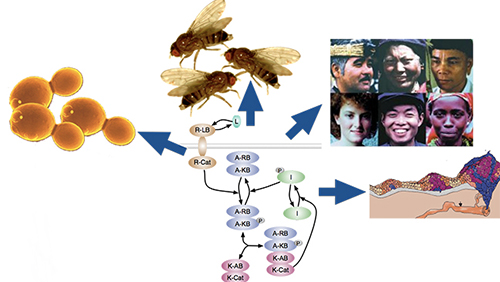
How do genes work? That question links together the Genetic Mechanisms category, and MCB researchers address it from a number of different angles using a variety of techniques, including genetics. MCB labs conduct research in several related areas: First, genes and genomes must be properly replicated and maintained, and cells have elaborate control mechanisms and DNA repair pathways to respond to damage or other stimuli. Second, genes must be properly expressed, ultimately generating the proteins and other molecules that "do the work" of the cell. This involves a series of gene expression steps, starting with the production of an mRNA (transcription), followed by its processing and localization, and continuing to protein synthesis (translation). Each of these steps is exquisitely regulated to control gene expression as needed. Third, proteins must be maintained in an active state, and degraded when appropriate, as aberrant protein levels and/or function can be extremely detrimental to the cell.
Despite decades of research in these areas, we have only begun to scratch the surface of the beautiful and complex mechanisms that control our genes. Furthermore, although this is research into the fundamentals of biology, much of this work relates to human disease including, among others, cancer and neurodegenerative disease.





